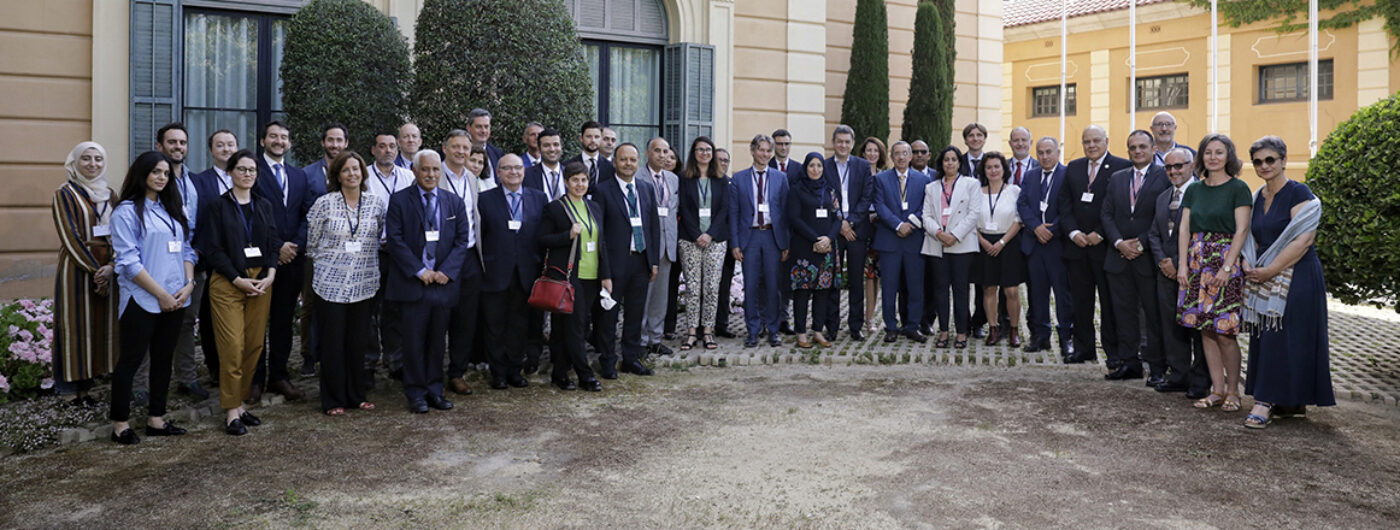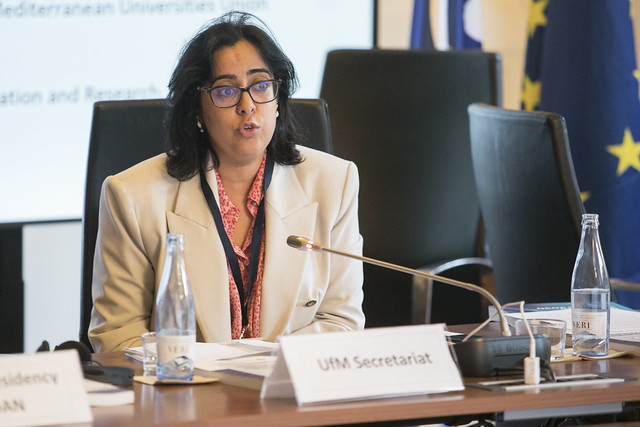
Towards a Renewed Strategic Agenda for Cooperation on Higher Education and Research in the Mediterranean
Barcelona, 19 May 2022. The Union for the Mediterranean organised a Regional Dialogue Meeting in the framework of the 3rd UNESCO World Higher Education Conference (WHEC2022), held in Barcelona from 18 to 20 may. The meeting was an opportunity for qualified exchanges between representatives from Ministries of Higher Education of the UfM Member States, the European Commission, and key regional partner organizations and relevant academic stakeholders. UNESCO and the Global University Network for Innovation (GUNi), the local organizers of the World Conference, were also present.
The UfM Secretary General, Nasser Kamel, addressed the following message: “As the last Euro-Mediterranean Ministerial Meeting on Higher Education took place 15 years ago, it seems only appropriate to reflect on the opportunity to organise a new UfM Ministerial Conference. In the context of a global trend towards a new generation of universities, an ambitious higher education initiative covering the whole UfM region is necessary. This new impulse should capitalize on the existing regional networks and collaborations and ensure a transformative impact on the higher education systems and institutions”.
Participants congratulated the efforts made by the Union for the Mediterranean to raise awareness among Member States and academic stakeholders of the crucial importance of higher education as a tool to achieve an inclusive and sustainable development.
The meeting was an opportunity to start drawing up a renewed strategic regional agenda for cooperation on higher education in the Euro-Mediterranean area, especially focused on youth employability and intercultural dialogue. This was done building upon lessons learnt from experience, updating priorities, and ensuring proper follow-up mechanisms for future implementation.
Participants stressed the need of addressing skills mismatches, youth unemployment, fostering partnerships, academic mobility and the recognition of qualifications, improving shared knowledge on internationalization trends and policies, facilitating continuous peer learning on policies and practices addressing common challenges and priorities, and fostering the implementation of joint projects and initiatives.


